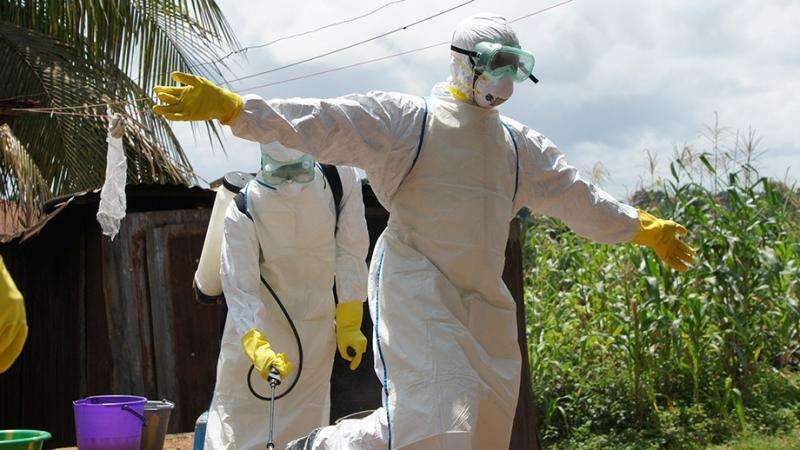How the world stopped Ebola

New research has found the successful end to the spread of the Ebola Virus Disease (EVD) in West Africa was due to a coordinated response and the accepted traditional measures of control used in past outbreaks.
Researcher Dr Kamalini Lokuge from The Australian National University (ANU) was part of an international team on the ground during the Ebola outbreak that ended in Sierra Leone in November 2015.
"People are always looking for a magic bullet. But we were able to control this particular outbreak by agencies working together and by communities being engaged effectively," said Dr Lokuge from the ANU National Centre for Epidemiology and Population Health.
"What Ebola brought to the fore is that you can have resources and implement measures but unless you engage communities effectively then that won't be successful.
Ebola Virus Disease is a severe illness usually spread by personal contact. The World Health Organization recorded more than 10,000 deaths in West Africa during the latest outbreak.
The outbreak in West Africa was the largest and most difficult to control of any Ebola breakout in history, due to scale and geographical distribution which led to the doubts about the effectiveness of established control measures.
"Ebola was stopped using well-established methods - by educating communities, giving sufficient patient care including admission to specialist facilities of suspected cases, and adequate staffing and resourcing for community-based case detection.
"It is also necessary for specialised centres to have equipment and procedures to prevent passing on Ebola, and safe burial practices for those who died from the disease."
Dr Lokuge said there were unnecessary delays in implementing these measures.
"These delays resulted in illness and death in many thousands in affected areas in Guinea, Sierra Leone and Liberia that can and should have been prevented. We hope that our work contributes to a better response the next time such an outbreak occurs," she said.
Research on the Ebola outbreak also will help medical authorities address other healthcare challenges.
More information: Kamalini Lokuge et al. Successful Control of Ebola Virus Disease: Analysis of Service Based Data from Rural Sierra Leone, PLOS Neglected Tropical Diseases (2016). DOI: 10.1371/journal.pntd.0004498














